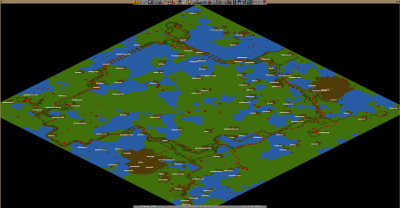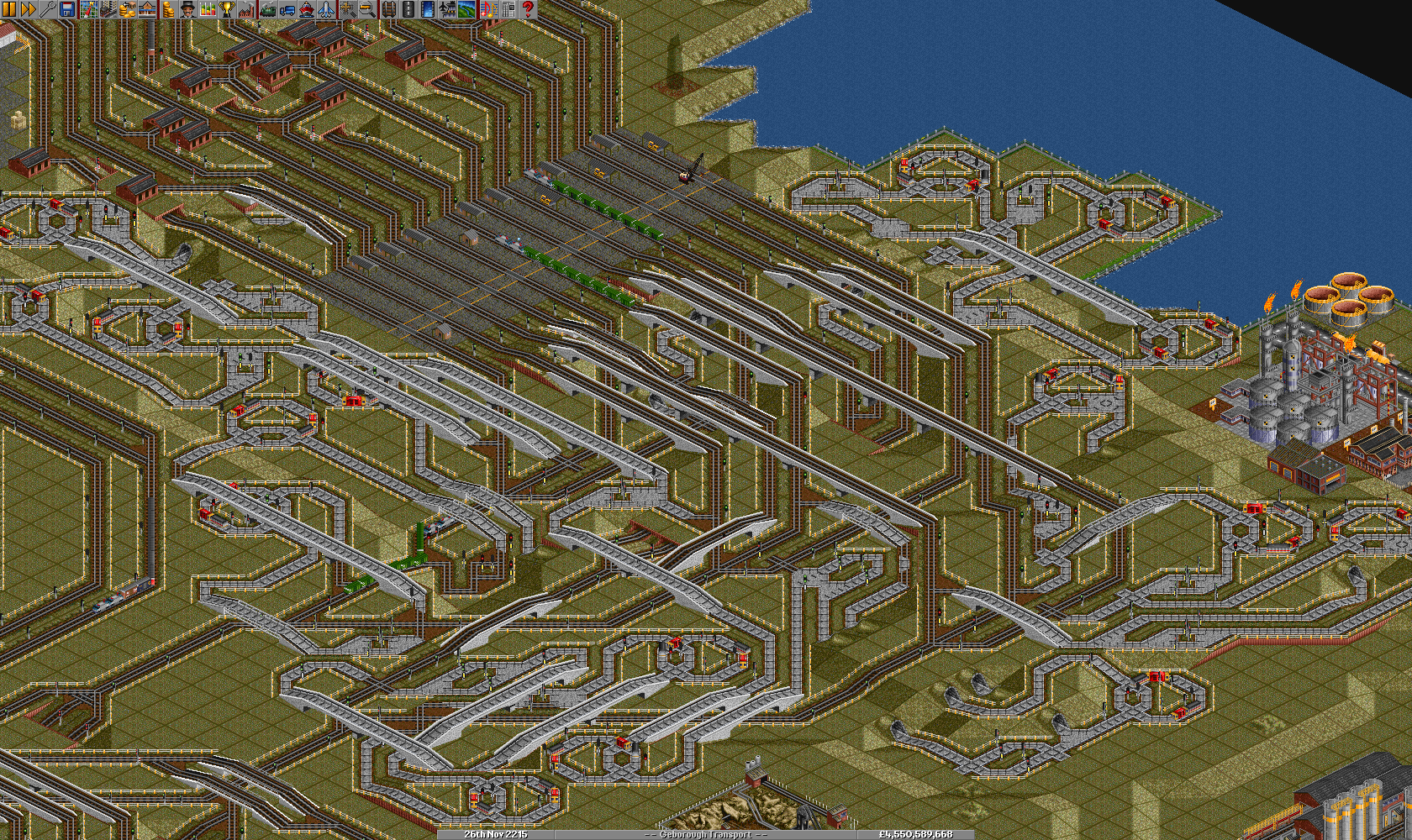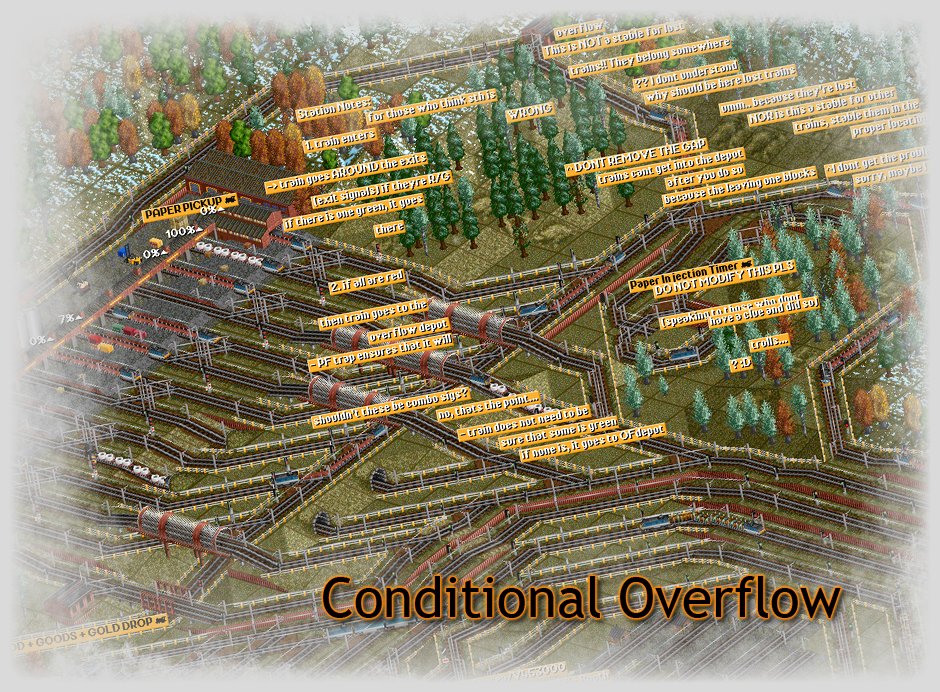Over a period of months I have been developing a game which I have been test out network capacity and packing. To do this I boosted some primary industries and connected them directly to the main line. This in itself causes issues, which can jam the main line. To overcome this issue I built very high capacity stations.
My network ended up with 890 trains that travelled around a ML ring. Since all the primary stations where on the ML the game ended up only having MSH and BBHs. This meant that I have to balance all of the tracks on and off the main loop. The loop was LLL_RRR most of the way around excluding the northern section which was LL_RR and L_R only in some sections.

Read the rest of this entry »


